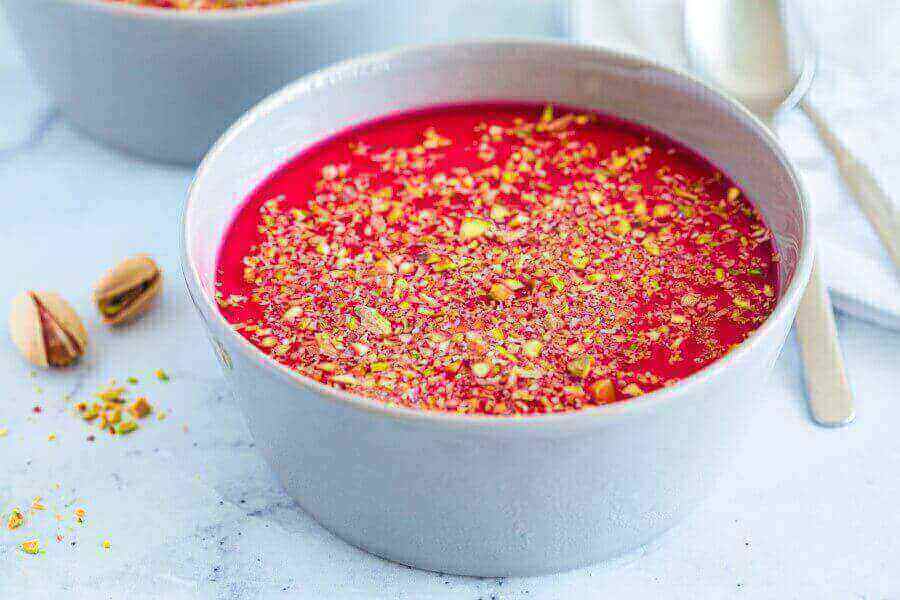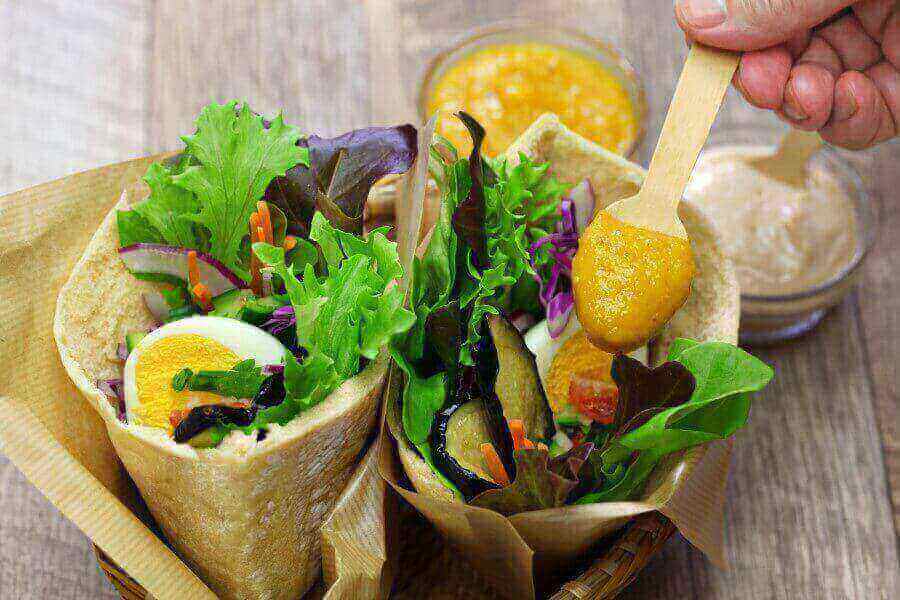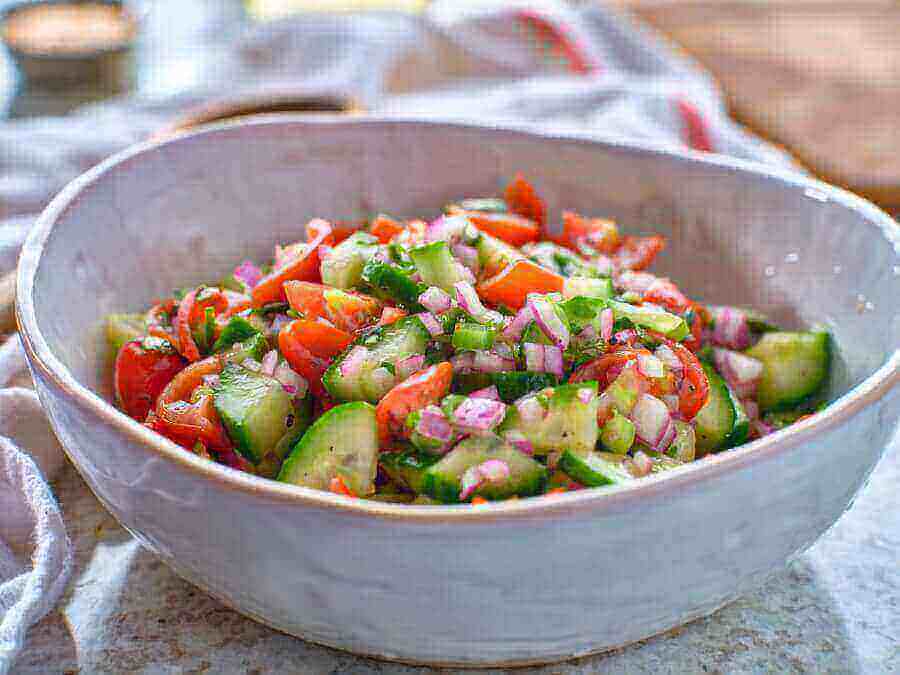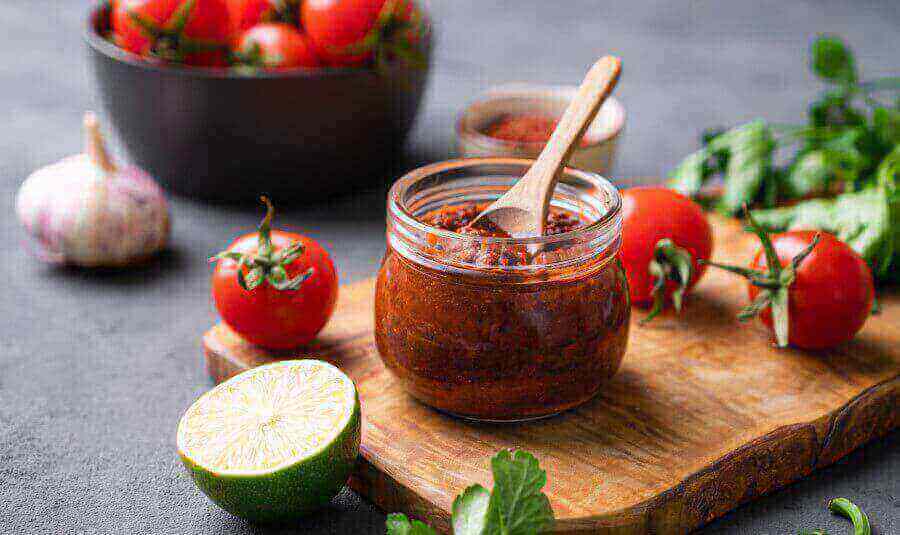Israel is famous for its religious landmarks and cutting-edge technology. But did you know that the variety of food in Israel also makes it one of the most well-rounded cuisines out there? You can already start your adventure with some nice traditional Israeli Breakfast.
Only a few cuisines in the world offer such diverse breakfast options that cater to various preferences, and a typical Jewish breakfast does just that! Whether you’re a meat eater who loves a big breakfast or a vegetarian looking for something light and fresh, there are tasty dishes that will satisfy your desires.
What’s Special About Israeli Breakfast
Local dishes here feature a blend of meats and cheeses that account for a nutritious start to the day. Oh, and the breads here are a class apart, too! They are lighter and fluffier than the regular breads we are used to having.
In contrast, some locals also love a burst of freshness to kick off their day. This means plenty of healthy veggies! You can find tons of vegan options featuring a wide range of regional produce like eggplants, tomatoes, and potatoes. The colorful array of fresh vegetables at the market stalls was so inviting.
Eggs are also common for breakfast in Jerusalem. They not only serve as an excellent source of protein, but the different ways Israelis prepare their eggs are also remarkable. You can find them in spiced, saucy dishes instead of eating straight-up bland-boiled eggs.
But perhaps what makes Jewish breakfast unique is the way of serving it. The breakfast here is grand and sometimes even served in a buffet style. A vast array of traditional food items are set at a large scale here, and everyone can fill their plates with what they love the most.
Most Famous Breakfast In Israel
Hamin (Meat And Potato Stew)

Hamin is more than just a dish; it’s a symbol of tradition and togetherness in Israel. The main ingredients in Hamin are chunks of tender meat, usually beef or lamb, and potatoes.
The traditional Israeli dish is cooked for a really long time. This allows the flavors to meld and create a rich, savory taste.
When you take a bite of Hamin, you’ll notice the meat is tender and flavorful, and the potatoes are soft and soaked with the delicious broth. The taste is rich, hearty, warming, and satisfying!
It’s a dish that’s often enjoyed on the Sabbath, a special day of rest and prayer, as we learned from our gracious hosts. It can be prepared in advance and cooked slowly over low heat. This allows families to have a warm and delicious meal without the need to cook on this holy day.
Breads And Sweets In Israeli Breakfast
Challah (Braided Bread)

Challah is a traditional Israeli breakfast that carries special significance. It’s often enjoyed on Friday evenings during Shabbat, the Jewish Sabbath, and on holidays. The bread’s braided shape symbolizes unity, togetherness, and the intertwined nature of life.
Its golden-brown exterior is inviting, boasting a shiny finish that glistens in the light. As you tear a piece, you’ll notice its soft, airy texture, which cradles a slightly sweet and eggy aroma.
You can eat Challah in many ways. Spread butter or jam for a simple pleasure, or use it as the foundation for a sandwich. The softness of Challah contrasts wonderfully with the crunch of veggies and the savoriness of your chosen fillings.
Kubaneh (Yemeni Bread)
Kubaneh is like a croissant but with an Israeli twist. When you look at Kubaneh, you’ll see it’s shaped like a small loaf, usually baked in a tin.
The outside is golden and slightly crispy, while the layers inside are soft and airy. They pull apart easily, and you can dip them into honey or tahini, savoring each bite.
We had one at a local market that was still warm from the oven; it was just the perfect mid-morning snack.
Different flavors make this bread so good. The base variant is buttery and slightly sweet, but you can add all sorts of toppings to make it perfect for your liking.
This Israeli breakfast dish is a warm and comforting treat, great for mornings or any time you want a little indulgence.
Malabi (Coconut Milk Dessert)

Malabi has a smooth and creamy texture, kind of like a pudding. It’s usually sweet but not overly so. The coconut milk gives it a tropical and nutty taste, while some recipes add rosewater or orange blossom water, giving it a subtle floral aroma.
A sprinkle of ground pistachios on top adds a nice crunch and a touch of nuttiness. Israelis usually eat Malabi cold, which is particularly refreshing on a warm day. We tried a rather memorable one that was garnished with pistachios and pomegranate seeds.
You can get it in small bowls or cups with various toppings like shredded coconut, pomegranate seeds, or a drizzle of syrup.
Vegetarian Options In Israeli Breakfast
Sabich (Eggplant Sandwich)

Sabich is a popular Israeli brunch option that revolves around eggplant. Slices of fried or roasted eggplant are placed inside fresh pita bread with hard-boiled eggs, creamy tahini sauce, crisp vegetables, and zesty amba sauce.
This is our personal favorite as opposed to a falafel sandwich. But of course, nothing beats the shawarma for us meat lovers.
The eggplant is tender, with a slightly smoky taste, while the eggs provide a smooth, mild contrast. The sauces, like tahini and amba, introduce a creamy, tangy, and slightly spicy kick, elevating the overall experience.
This sandwich is the most popular vegetarian street breakfast in Tel Aviv, and you can find it almost everywhere. It’s the perfect hand-held meal when we’re exploring the city.
Jachnun (Buttery, Filled Pastry)
Jachnun has a golden-brown, layered appearance, resembling a rolled-up pastry. It is often served for breakfast or on the Sabbath day. The inside, soft and tender, almost melts in your mouth.
This Jewish breakfast pastry can contain spinach, tomatoes, or any other local vegetable filling. Israelis tend to have it with an array of dipping sauces which makes it a rather exciting and versatile dish.
You can pair it with grated fresh tomato and Skhug, a fiery hot sauce made from chili peppers and spices. The tomato adds a cool, refreshing contrast to the warm pastry, while the Skhug infuses it with a spicy kick.
Some also enjoy dipping their Jachnun into hilbah, a sauce crafted from fenugreek that adds a complex, aromatic note to each bite.
Bourekas with Kasha (Savory Pastries)

Bourekas consist of a flaky dough filled with a mixture of kasha, which is roasted buckwheat groats, and various savory ingredients. The flaky pastry crust provides a satisfying crunch, while the kasha filling offers a nutty and slightly earthy taste.
Depending on the recipe, you might find added ingredients like onions, mushrooms, or herbs, which enhance the overall flavor. These bite-sized pastries are the go-to Israeli quick meal. We often pack a bunch of them when traveling since they are so convenient to eat and tasty.
Helps to save a bunch of time when you want to hit multiple sightseeing spots in a day. They are filling enough and good for snacking on road trips.
Spreads, Salads, And Dips In Israeli Breakfast
Salat Yerakot (Israeli Salad)

This salad is a colorful assortment of finely diced fresh vegetables, typically including cucumbers, tomatoes, bell peppers, and red onions. Cucumbers provide a refreshing crunch, while red onions add a subtle zing.
A simple dressing of olive oil, lemon juice, salt, and fresh herbs like parsley or mint elevates the flavors, giving the salad a light and tangy essence.
In Israeli culture, this salad is more than just a side dish; it’s a culinary emblem of freshness and health. It is commonly served with pita bread, hummus, and falafel, making for a well-balanced meal. Sometimes we just enjoy a light start to our day with this bright, fresh salad.
Labneh Spread (Hung Curd With Olive Oil And Herbs)

Labneh is a traditional Israeli breakfast spread that takes plain yogurt to a whole new level. The consistency of this spread is creamy and it’s a lot firmer than other yogurt dips. It almost feels like a cheese dip.
We first tried it with a fresh olive oil drizzle followed by a generous sprinkling of mint, basil, and paprika. You can use it as a spread to go on top of your bread.
What’s interesting is that it pairs really well with sweet items too! We had a serving of fruits with a bowl of honey-drizzled Labneh, and it was just amazing! The labneh added a creaminess that perfectly complemented the sweetness of the fruit and honey.
Matbucha (Spicy Tomato Salad)

The primary ingredient in matbucha is ripe, juicy tomatoes, which contribute a refreshing and slightly tangy flavor to the dish. These tomatoes are cooked down to a soft, spreadable consistency.
Red peppers in this salad bring a sweet and mildly spicy note to the salad, adding depth to its taste. But what makes matbucha truly special is the harmonious fusion of spices.
Garlic, paprika, and chili peppers create a bold, spicy kick. The matbucha we tried was fantastically complex and vibrant.
Discovering Traditional Jewish Breakfast In Israel
Breakfast in Israel truly looks as if it is the day’s most important meal! There’s immense variety, and you can easily find dishes that suit your preference. One of the interesting Israel facts is that the locals care for a big breakfast that gives them the energy to power through.
But what’s even better is that you can even find vendors selling sweet Israeli desserts in the morning, particularly in local markets. We are certainly guilty of indulging in some of these sinful pleasures to start our mornings.
So if you have a sweet tooth, you’re in for a treat! Israel is a land that has way more to it than what appears on the outlook. Take time to explore the roots of the country via their cuisine the next time you visit the place!